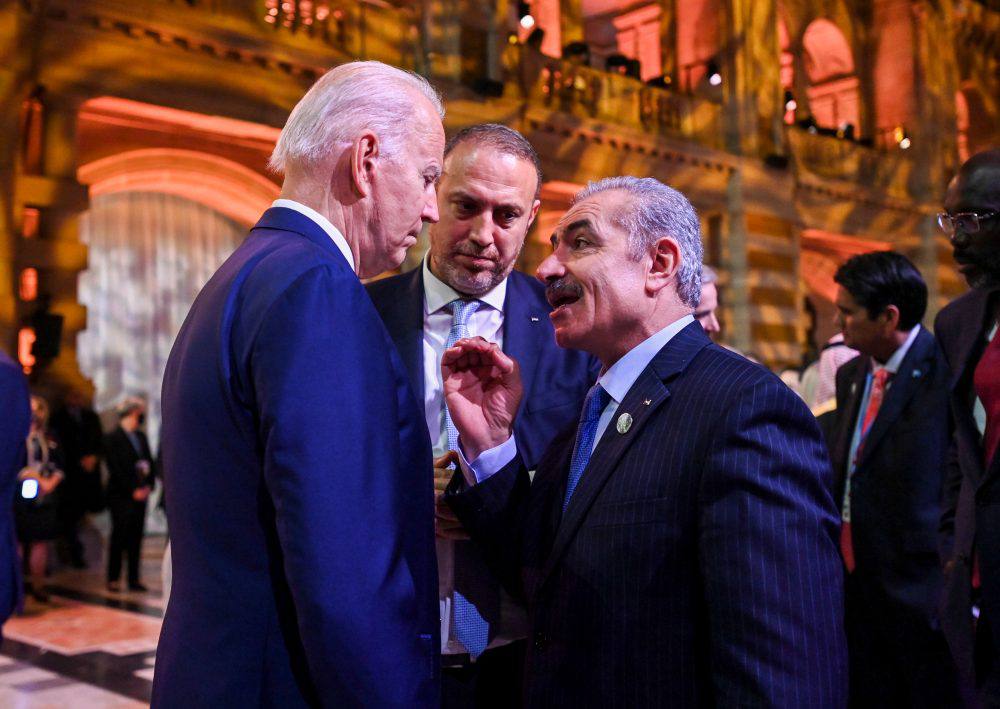The future Prime Minister of the Palestinian Authority is independent
The ideal successor to the resigned Prime Minister of the Palestinian Authority will be an independent candidate, more of a competent and expert individual than an old and weary politician.
Mohammad Shtayyeh, the Prime Minister of the Palestinian Authority since 2019, announced in a brief message on Monday, ‘I have submitted the government’s resignation to the President.’ This is more than just a change of the executive branch of a national institution that was never born. This event could be the first step for the future government of Palestine.
However, this is definitely the first step the day after the war, including the political and diplomatic choices that must be made with the end of the war in Gaza, as well as providing security to Israel and a vision and prospect of the future to the Palestinians. The decision to resign the Prime Minister and the entire government with weak achievements was what the United States and Europeans wanted to renew the image of the Ramallah government in the West Bank, an autonomous entity that the international community believes should replace Hamas in the Gaza Strip.
But the Gaza war is not over yet, and the day after the war is still far away, and predicting it is like doing calculations and making deals without considering Israel. Negotiators are trying to reach a ceasefire agreement for the release of Israeli hostages in exchange for Palestinian political prisoners in Israeli jails.
But Benjamin Netanyahu has repeatedly said that the attack on Rafah will take place, and when everything is over, no one yet knows when and how Gaza will remain under his control. These are plans that conflict with the wishes of the United States and confirm the existence of inconsistencies and conflicts between the Israeli Prime Minister and Joe Biden, the President of the United States.
But it is not just Netanyahu and his extremist national-religious government who oppose an independent Palestinian state. The vast majority of Israeli public opinion does not accept this idea. There is still war, and the memory of the October 7 massacre in the operation known as the Al-Aqsa Storm is still very vivid and clear in the public mind of Israeli society. The civil society of the country, even the moderates and those who were once peace advocates, are participating in this national mobilization.
This is a big problem and obstacle for those who are currently planning for the future. The Americans, Europeans, and moderate Arabs are navigating between the pessimism and hostility of the two nations involved in the conflict and are somehow trapped, assuming that they might completely ignore each other or even hate each other more than before. The majority of Israelis and Palestinians do not believe that it is possible to compromise on conflicting ideas of peace.
The first question is who will replace Mohammad Shtayyeh and his government in Ramallah. There is also the issue of Mahmoud Abbas, Abu Mazen, who was elected as President in 2005 without any other elections being held to confirm him since then. At 88 years of age and with a history of decision-making paralysis, his succession will be a key step in renewing Palestinian power. But now is not the time to organize elections, neither in Palestine nor in Israel.
In any case, he is not an efficient governance model, and achieving a suitable and effective governance model without freedom will be difficult. The Israeli occupation regime has never helped the Palestinian Authority, which, unlike Hamas, has recognized Israel’s existence for about 30 years.
The ideal and suitable successor to Mohammad Shtayyeh will be an independent candidate, a competent and expert person, not a tired politician from the old generation. A candidate with the profile of Salam Fayyad, who, after working at the World Bank and International Monetary Fund, was Prime Minister from 2007 to 2013. That period was not a chapter of peace negotiations or cooperation with Israel, but Fayyad, while waiting for better days, decided to create the necessary structures and institutions for the future government. The independence of the monetary authority increased, and the hypothesis of Palestinian currency was born. Jihad Al-Wazir, the head of the monetary organization at that time, said, ‘No country will ever be independent without its currency.’

